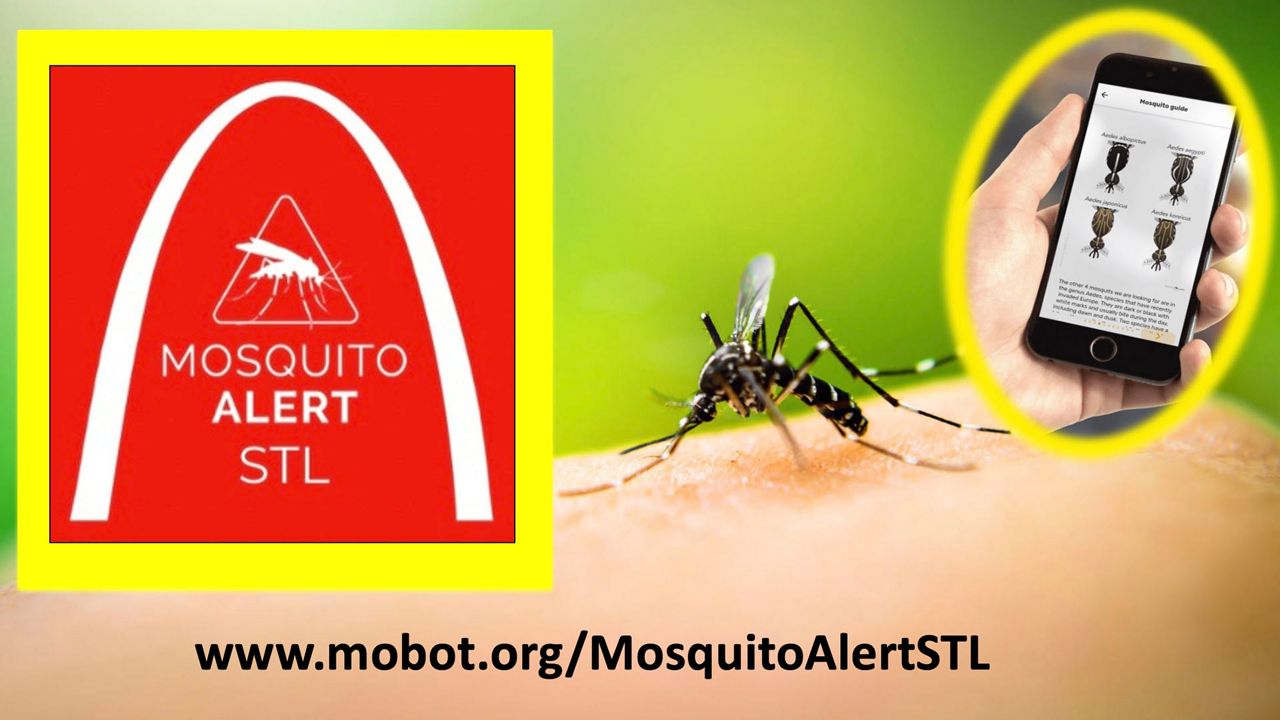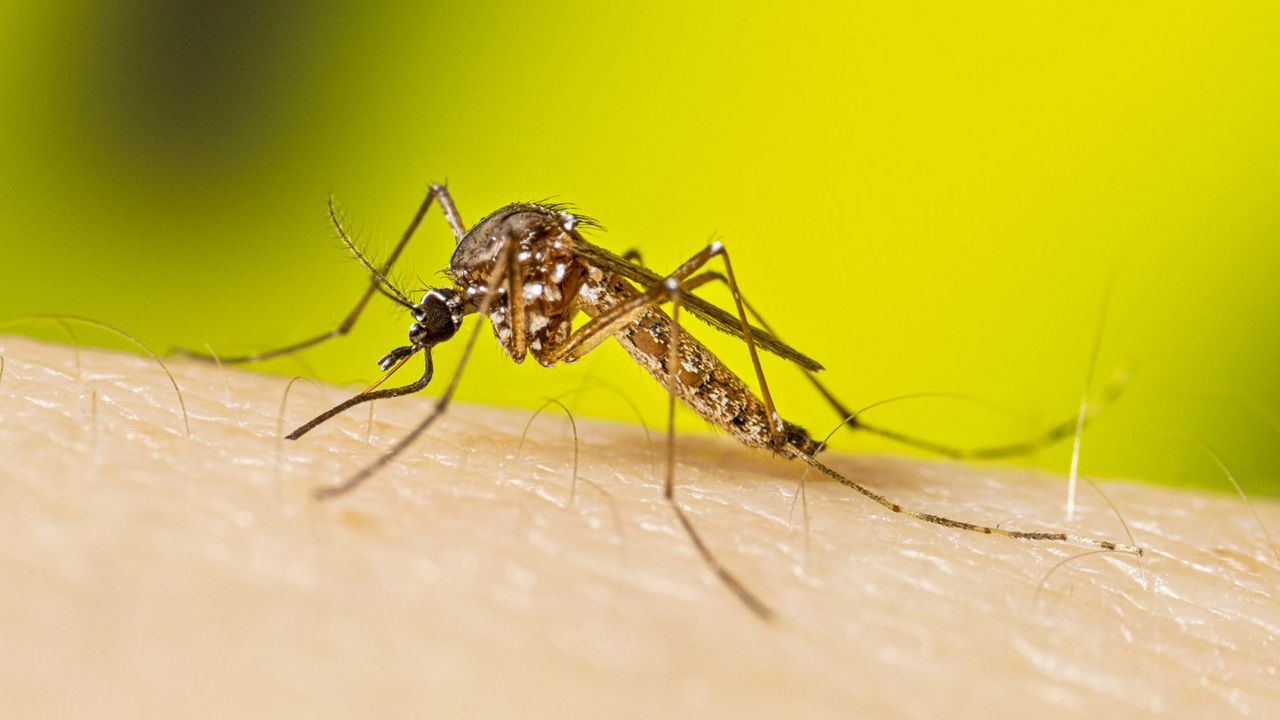ST. LOUIS — A mobile app tracking mosquitoes in Europe was piloted in St. Louis last year, and now, the project team behind it needs help from area residents.
In 2016, an app called Mosquito Alert was developed in Barcelona, Spain, after an outbreak of the Zika virus, which was a global concern at the time, according to Jean Ponzi, green resources manager for the Missouri Botanical Garden.
To keep track of the different types and locations of mosquitoes, the University of Barcelona created the app for people to capture and upload photos of mosquitoes in their area, as well as mosquito bites and breeding sites, according to Ponzi.
The uploaded information was used to help public health agencies investigate and control mosquitoes that transmit diseases such as Zika, dengue, chikungunya, and West Nile virus.
Labeled as a citizen science platform, the app was well received in Barcelona.
“It was so successful that they established a department of biodiversity in the city of Barcelona,” Ponzi said.

She added that the Mosquito Alert is being used throughout Europe, and St. Louis is the first city in the U.S. where the app will be used as a citizen science platform similar to how it is being used in Spain.
Mosquito Alert STL is the name of the project behind the local version of the European app where Ponzi and St. Louis University professor Dr. Ricardo Wray are among the five people active on the team.
There is a partnership between St. Louis University, the Missouri Botanical Garden, St. Louis City and County health departments.
After refining the project’s outreach message and process last year, Ponzi said the team currently is focused on educating the public to acquire users.
With only a handful so far, the goal is to have as many users in the region as possible to help St. Louis City and County officials track the different types and locations of mosquitoes, as well as keep an eye out for the species that are vectors for disease, according to Ponzi.
Photos of mosquitoes, bites and breeding sites uploaded to the app by St. Louis area residents are sent to local entomologists who validate the incoming information, send a confirmation back to the user, and then forward the data on to public health agencies, Ponzi said.
Mosquito Alert is a free, user-friend app that can be downloaded on any smartphone. There is not only a tutorial on how to use the app, but graphics and information on the targeted five mosquito species, details about the overall project and a list of the international partners and coordinating entities, including the World Health Organization, United Nations, and more.
Controlling insects in an ecological manner can protect other vital pollinators, according to Ponzi.
“And that’s especially important in St. Louis because as a region, we are a national leader in native plants, using native plants, having native plants be part of our landscapes for supporting pollinators,” she said.
“Native plants are the plants that work in rain scaping installations that are being put in all over our region with grant funding to help control flooding and stormwater management, so that is a very, very big thing here.”
Besides community education, the project team also is evaluating the effectiveness of the strategy behind the app and looking at more ways to engage people on public health efforts through the app, Ponzi said.
Wray mentioned there is knowledge of disease carrying mosquitoes in Missouri, and every year there are a few cases of the West Nile virus, in addition to the threat of the Zika virus.
“We know from our local public health agencies, as well as the state agency, that they’re really cognizant of the concern about mosquito borne diseases and tracking them,” he said.
“Our project is really enabling us to enroll citizens, through citizen sciences, to help and support both the local health and state health agencies.”
Wray added that by tracking mosquitos’ location with the help of the people, public health agencies can use their resources effectively when trying to control the populations that also are not harmful to the environment.
For more information about the Mosquito Alert app, click here.
